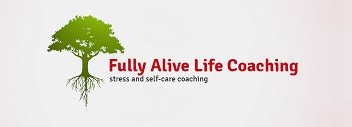Alright, so during the summer of 2006 I sold books door-to-door in Columbia, Missouri in an attempt to pay for college tuition and rent. As it turns out, I was not much of a salesman. That summer was one of the most challenging summers of my life. I learned a lot about myself, how to sell and ho to work hard no matter what.
While I did not walk away from the experience as a rich man, as others actually did, I did grow as a person in four major areas: time management, positive self talk, self-care and a having a business mentality or mindset.
Let me explain: In time management, I learned to break days into manageable sections. Selling books door-to-door, my team woke up everyday at 5AM. We showered, ate breakfast and drove to our locations. We had to knock on our first door at 7AM. Then we were not allowed to come back home until 10AM where we ate diner and went to bed. This routine started over again Monday -Saturday. Sundays were hardly a day off, since we had to travel three hours to get to an all-day business meeting with other link-minded book salesman in the same larger geographical region.
The thing about time management, first was focusing in. Focus on the first 3 hours. Map out a game plan and work hard for 3 hours. Do not think about lunch or tomorrow, push hard and focus in on the next potential customer.
The second time management tip is the more obvious stuff. There is no time for emails, going to movies, museums, football games, etc….This is not tourism nor a vacation. This is earning wages and working hard.
During the week-long training in Nashville, before heading out to Columbia, we were given a lot of training on selling, thinking like a business person and we did a lot of practice role-play to get ourselves ready for the actual summer. After the role-plays, mentors and business experts gave us a lot of tips and feedback. They taught us to think positively. They showed us how to do positive self-talk. In between doors, on our drive from home to our locations and even during potty-breaks we were suppose to sing or shout, “It’s going to be a great day!” and “I am a selling machine!” I was pretty unfamiliar with this idea of positive self-talk up until this point in my life. Especially after a complete rejection from a potential customer who is threatening to call the cops, it really is encouraging to look at the positives instead of getting our psyche thrown off by a ragging homeowner. Even if the positive self-talk was just lies, it was still encouraging.
Okay, well with self-care, I learned how to control my energy level. These were long days, even longer weeks. And as I mentioned earlier, I was not very good at selling. So often times, I came away empty handed. The first few weeks I was adjusting to the ridiculous schedule I was not able to focus in on one three hour time block at a time. I was worried about the entire day and that was draining my energy level. Once I figured out how to focus in on the three hour time block, I was able to get my mind off of the worries of the day and just focus on the next street. Each street was a treasure hunt to find a customer. My positive self-talk told me, “someone on this street was going to purchase books today!” I am blessed to have learned this crazy skill of energy preservation. I used this skill again just this past week at a youth-group lock-in. All of the teenagers were napping by 4AM, I stayed away the entire night and didn’t nap until after the lock-in was complete and I was in my bed at home. Mental self-care was all about focusing in on the successes, that was the only way to survive mentally.
Another part of self-care is that I learned that I do not want to be a salesman. I do not want to be a workaholic that does not have time for anything other than making money. I found my true self and many things that I am not passionate about during this summer. But by going through with the experience I can now relate to people who are feeling burn-out of long work days and of the burn-out of sales.
Finally the main thing I learned is about the business mindset. The company, I sold books with, who will continue to go unnamed, had excellent training materials. I still look back at the sales manual today. The training was a great experience. I am thankful for that. I am thankful for not waking up to the dreaded day of selling books in the summer heat of the Midwest.
So I am blessed to have learned a great deal from my time there that summer. Now I can put these things and other things into practice even today. I encourage others to learn also from my experience instead of through the hard way!



